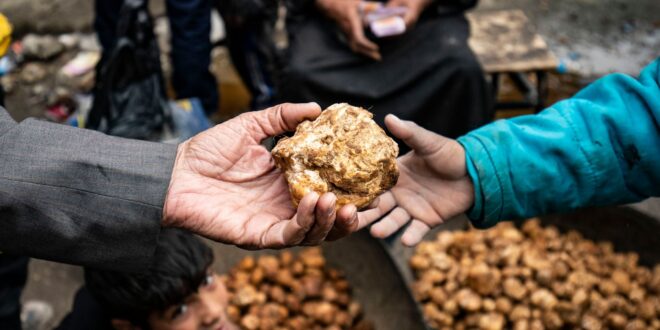Russian President Vladimir Putin held separate calls with his Turkish and Syrian counterparts, Recep Tayyip Erdogan and Bashar Al-Assad, on Saturday, promising “closer cooperation” in the fight against terrorism in the wake of the deadly concert attack in Moscow, according to a Kremlin statement, MEMO reported.
The statement noted that Erdogan offered his “deep and heartfelt condolences to the families and friends of the victims and stressed the urgent need for closer bilateral cooperation in the fight against the terrorist threat.”
In a conversation with Putin, Al-Assad expressed his “wishes for patience and peace for the families and friends of the victims,” and they agreed to “intensify communications to address the fight against terrorism,” according to the Kremlin.
Russia is the most powerful foreign power operating in Syria, and Putin has long been allied with Al-Assad, throwing the weight of the Russian military behind his Syrian counterpart.
SDF says Iran-backed militias infiltrated into areas in Deir ez-Zor
The Syrian Democratic Forces (SDF) reported a clash in the eastern sectors of the Euphrates River in Deir ez-Zor Governorate, resulting in the fatalities of Syrian government soldiers during a failed infiltration attempt.
According to the SDF, the confrontation ensued when the Hajin Military Council, a component of the SDF’s military apparatus, repelled an incursion by militants associated with Iran-backed militias and Syrian government forces early Sunday. This encounter led to the death of several militants from the National Defense Forces (NDF), a militia supporting the Syrian government, with the SDF securing two bodies along with various weapons and ammunition.
The conflict spotlighted the continued tension in the region, with the SDF disclosing evidence suggesting a coordinated effort between Damascus and Tehran against SDF positions. Among the retrieved items was a security card from the Sons of Jazira Euphrates Movement, indicating the deceased’s affiliation with forces aiming to bolster Arab tribal dominance in eastern Syria.
Further documentation linked the fallen militants to the al-Karbalaei Forces, an Iran-affiliated group established in 2019 with the declared aim of combating American presence in Syria. A notice found on one of the bodies confirmed the reception of ammunition and weaponry from this group, underscoring the direct involvement of Iran-backed forces in the skirmish.
11 killed in a new round of suspected IS attacks on Syria truffle hunters: monitor
AFP reports that an attack by the Islamic State group (IS) killed at least 11 people hunting desert truffles in northern Syria on Sunday, a war monitor said, after the latest such incident.
Between February and April each year, hundreds of impoverished Syrians risk their lives to forage for the delicacy in the vast Syrian desert — a known hideout for jihadists that is also littered with mines.
Desert truffles can fetch high prices in a country battered by 13 years of war and a crushing economic crisis.
“At least 11 people collecting truffles were killed when IS fighters detonated a bomb as their car passed in the desert of Raqa province in northern Syria,” the Syrian Observatory for Human Rights reported.
After the blast, the attackers opened fire, the Observatory added.
Residents were still searching for missing persons, said the Britain-based monitoring group with a network of sources inside Syria, noting that the jihadists kidnapped three other hunters.
Confronting Forced Demographic Change in Northern Syria
In the article “Confronting Forced Demographic Change in Northern Syria: Inclusive Justice for Sustainable Peace,” Bassam Alahmad illuminates the grave human rights violations and forced demographic shifts in northern Syria, emphasizing the urgent need for inclusive justice to achieve lasting peace. It recounts the poignant story of Malak Khalil Ibo, a Kurdish woman displaced by the Turkish incursion into Afrin in 2018, alongside 100,000 others. The narrative delves into the historical context, comparing recent events to the Baath Party’s Arab Belt project in the 1970s, showcasing a long-standing pattern of forced demographic changes targeting the Kurdish population.
Malak’s tragic death, following a confrontation over her right to harvest her own olive trees, symbolizes the broader issue of property rights violations and the lack of legal recourse for displaced Kurds in the region. The involvement of Turkish-backed militias and the systematic appropriation of Kurdish homes and lands underscore the complex web of actors contributing to these human rights abuses, from the Syrian regime’s discriminatory laws to the actions of militant groups and foreign military interventions.
The United Nations and human rights organizations have documented these violations, yet the international community’s response has been uneven, focusing predominantly on crimes committed by the Syrian regime while often overlooking abuses by other actors, including those backed by Turkey. Alahmad argues for a balanced approach to justice that holds all perpetrators accountable, regardless of their geopolitical affiliations, stressing that peace in Syria hinges on a justice system that recognizes and rectifies the grievances of all victims, including the Kurdish population displaced and disenfranchised by ongoing conflict and foreign interventions.
 Eurasia Press & News
Eurasia Press & News




